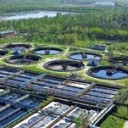Public institutions, too, came under legislation in 1997 specifically to reduce the release of soiled water into rivers or fields from public sewage systems. The immediate consequence was a drive to build sewage purification plants. Today, citizens enjoy sweet water fish or a swim in clean rivers but curse their bills for waste water treatment which have become higher than the fees for fresh water supply.
June 10-16, 2013
Rainer Lotz
Littering is rated as a public offence and attracts stiff fines in Germany. The detection of a defunct fridge or a few car tyres left at a road side nowadays is not only stuff for a news item in the local papers but is investigated by the police.
Only a few decades ago, construction rubble and demolition material strewn along paths, fields or in the forests was a common sight. Presently, not only official building debris dumps or construction waste containers are a must at any building site. 90% of the 200 Million tonnes(What is Mio.tonnes please? Google says emissions are measured in mio tonnes) of construction rubble was recycled which accounts for almost half of the total waste in Germany during 2011. Even green waste from gardens has to be disposed off at compost works, generally run by the municipalities.
Public institutions, too, came under elaborate legislation in 1997 specifically to reduce the release of soiled water into rivers or fields from public sewage systems. The immediate consequence was a nationwide drive to build sewage purification plants in order to meet the prescribed parameters. Today, citizens enjoy local sweet water fish or a swim in clean rivers while on the other hand they curse their bills for waste water treatment which by now have become higher than the fees for fresh water supply.

A sewage plant
Nearly all pertinent industries in Germany are covered in 57 appendices of the Waste Water Ordinance of 1997 with the aim of checking and reducing the disposal of hazardous substances. Obviously, the additional costs of their products led to higher rates on the market which made them more expensive for the consumer/buyer and turned them less competitive against cheaper imports, particularly from China.
Thus, the basic principle of "the polluter pays" consequently means the consumer pays, i.e. the public. Taking a short look at nuclear waste and the threats of accidents as witnessed in Fukoshima proves that far beyond the obvious expected fees for the consumers there can be totally unforeseen damages and subsequent costs of tremendous extents. The German nuclear industries, mainly the big power generating companies (E.on, TWE, EnBW and Vattenfall) are legally forced to set aside a sum of more than 30 Billion Euro for whole site contraction and disposal of nuclear waste, in addition to an annual 2.3 Billion Euro as tax for nuclear fuel elements. Yet, nobody knows what the cost will be for the required sustainable nuclear waste repositories and for the treatment of all sorts of contaminated materials, as even the German Federal Court of Auditors remarked. A study published by Greenpeace estimated the costs for the comprehensive opt out that the German government decided for 2022 at 40 Billion Euros. (http://www.contratom.de/2012/04/11/greenpeace-versorger-haben-zu-geringe-atom-rucklagen/).
Biggest conflict in post-war Germany
Presently, the debate which is raging in Germany on the issue of the final storage of nuclear waste shows that we are far away from any 'consensus' that the present Minister for Environment, Mr. Peter Altmaier, has been propagating. The uncertainties start with the question which place - mostly former mines, will be technically and geologically suitable and would be acceptable for the surrounding population. Then, there is the question of who will pay for the exploration of the various proposed disposal sites. Right now, the figure of 2 Billion Euro is making the rounds in Germany while not one single satisfying location has been identified yet. The tremendous resistance by the concerned citizens in this probably biggest and longest conflict in post-war Germany, as the Minister for Environment branded this particular issue recently, throws up enormous costs for policing and security through the government authorities which again will be covered by the tax payers money.
Nuclear power generation has proven to be just one of the loose ends in a sustainable protection of the environment. The trade and the management of carbondioxide emission permits all over Europe - which anyway provoke the comparison with the infamous letters of indulgence issued by the Catholic Church in the 16th century is highly opaque to say the least and the impact of the whole scheme is yet to be seen.
The construction of huge plants for garbage treatment in the 80s and 90s in the last century many a time followed rather commercial interests of a murky clique of entrepreneurs, builders and public servants in municipalities, as the example of Cologne like many other cities in Germany shows. Inflated estimates about future demands led to the construction of plants which today can be sustained only through the import of garbage from other countries like Italy. Waste management in Germany is a huge business and the money has to be generated from somewhere - which ultimately means it comes directly or indirectly from the citizens' pockets. Yet, an overall consensus obviously exists that without a comprehensive protection of the environment against pollution damages will cost the society much more in the future.
(Rainer Lotz is a German who divides his time between Germany and the beautiful island of Chorao)



